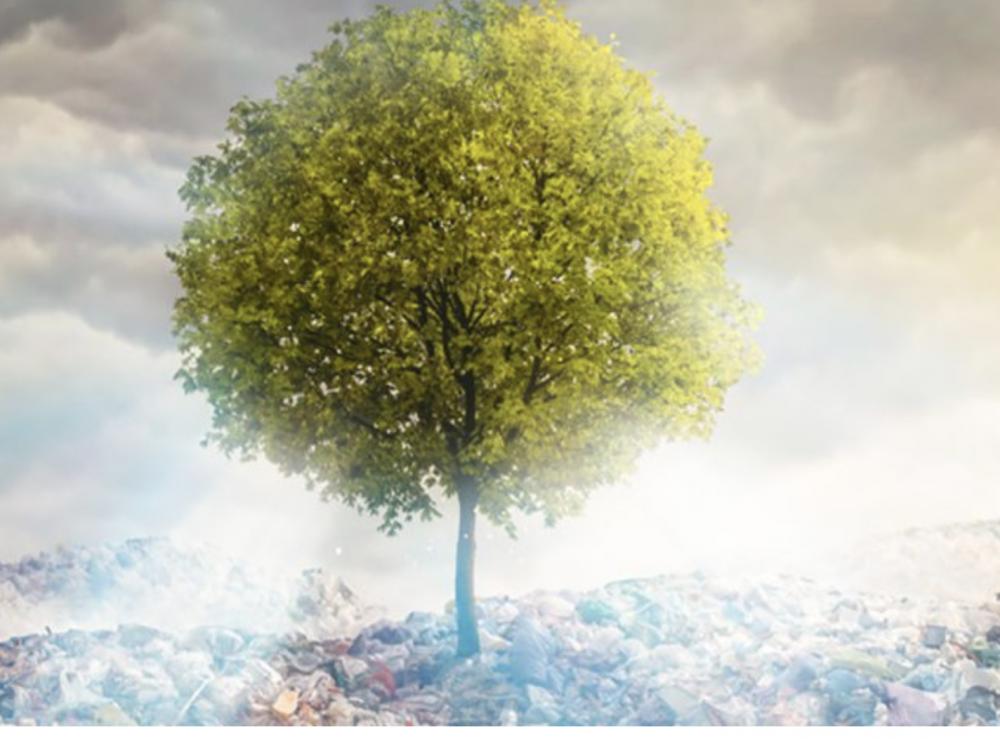Discovering local initiatives to reduce, reuse and recycle plastics is like walking through a maze. Each time I think that I have a good understanding about what is going on, I find a new pathway. At every stop on this journey I leave more knowledgeable and more impressed with the ingenuity of local people trying to solve this problem.
This week, I had the pleasure of talking with Ms. Tina Jones, Vice President for Administrative Services at Chesapeake College about their efforts. In only fifteen months, the college has significantly reduced its use of single-use plastics and improved recycling, all at minimal cost.
We need to do three things to reduce our plastics footprint: eliminate single use plastics, create a demand for recycled products by using them and get smarter about recycling.
To tackle the plastics problem Ms. Jones knew that she had to: (a) make it easy and (b) take advantage of the partnerships that she had. She had a head start knowing that the population at Chesapeake College is environmentally motivated; still she recognized acceptance required using incentives and making it easy.
First step: they got smart about recycling. They made recycling easy for students and faculty, by consistent placement of recycling stations and putting them near vending machines. They also offer a recycling station for the community.
To reduce the use of plastic water bottles, they have water fountains throughout their buildings, most with a refillable station. The beverage vending machines sell drinks in only metal or glass containers. When traditional sources (e.g., Coke and Pepsi) resisted, they replaced them with newer products. In doing so, they increased sales.
They sell reusable drink cups to replace plastic disposable cups, co-branded with Chesapeake College. While each glass cost $2, the cost of beverages is discounted so that it pays for itself after two purchases. They utilize silverware, reusable baskets and washable trays instead of disposal products.
When they must use disposal products, they use paper cups for coffee, paper-based takeout containers, and paper straws. They replaced the “packaged assortment” plastic silverware with individual plastic items, so people can just select what they need.
They challenged the bookstore to eliminate plastic bags. Now students purchase a canvas tote for $1.98 and if it is returned within 3 weeks, students receive a full refund.
To increase the demand for recycled products, they use trash bags made up of recycled material.
Ms. Jones said that using partners enabled them to keep the costs down and make rapid progress. They challenged their food service supplier (Sodexho) with coming up with non-plastic alternatives. They partnered with Barnes and Noble to reduce single use plastic in the bookstores by cobranding canvas bags. These initiatives were so successful that Sodexho and Barnes and Noble are now offering these solutions to other educational institutions.
They partnered with Maryland Environmental Service to make their recycling more effective.
This is not their first environmental initiative; before tackling plastics, they reduced their energy consumption by 40%. On a sunny day they can produce enough electricity through renewable resources to meet their needs. Subsequently, they successfully tackled storm water and waste.
Reducing our use of plastics is a journey, an evolving project. While they have made substantial progress, there is still work to do with the ubiquitous coffee cup lid and with their vendors. For example, some vendors shrink-wrap textbooks with single-use plastic.
Ms. Jones said that the keys are mindfulness and patience.
It is easy to slip into our old habits. At the grocery store yesterday, I instinctively reached for a plastic produce bag, even though I carry reusable mesh bags for produce. Old habits die hard.
Angela Rieck, a Caroline County native, received her PhD in Mathematical Psychology from the University of Maryland and worked as a scientist at Bell Labs, and other high-tech companies in New Jersey before retiring as a corporate executive. Angela and her dogs divide their time between St Michaels and Key West Florida. Her daughter lives and works in New York City.



Al DiCenso says
Look at your home-delivered newspapers: Standard, one non-reusable plastic sleeve. Washington Post, not one but TWO! Let’s go back to paper shopping bags; highly reusable for many purposes, and when finished, completely biodegradable. And please no whining about tree cutting; those used to make that grade of paper are being grown faster than consumed, and by the way, consume a lot of carbon in their growth process. And in the same vein, do we really need two yards of register receipt tape for a purchase of three small items in the supermarket?
Elizabeth Fisher says
I loved this article. I think properly tackling the recycling/plastic problem is hugely important. After finding out in recent months that much of we thought was being recycled was ending up as waste in Asia, I have been pretty bummed about the prospects for the viability of recycling. Glad to hear what Chesapeake College is doing on all fronts. A similar Mid-Shore-wide initiative (with an education component) would be amazing. A positive story about the environment is so welcome!